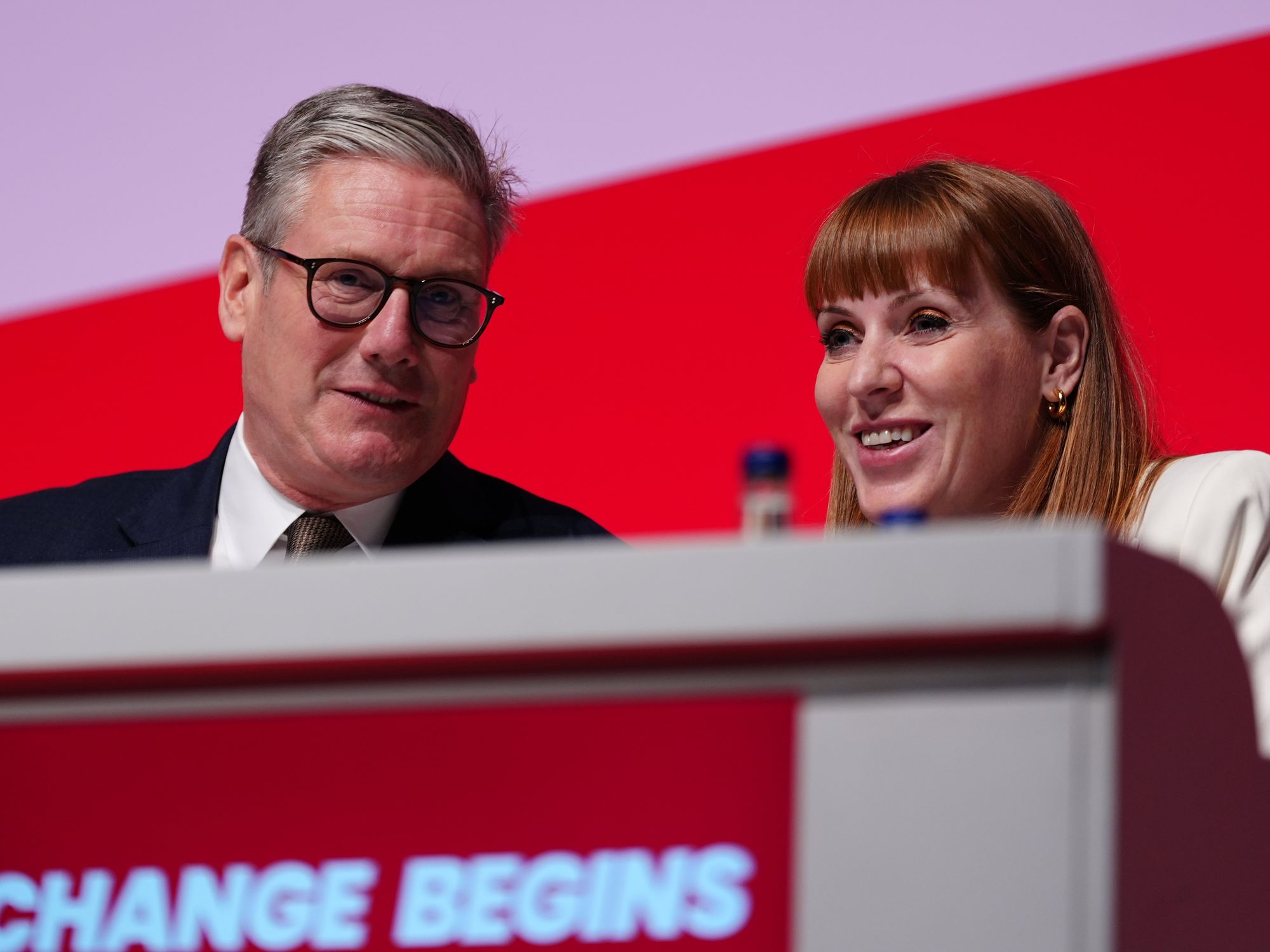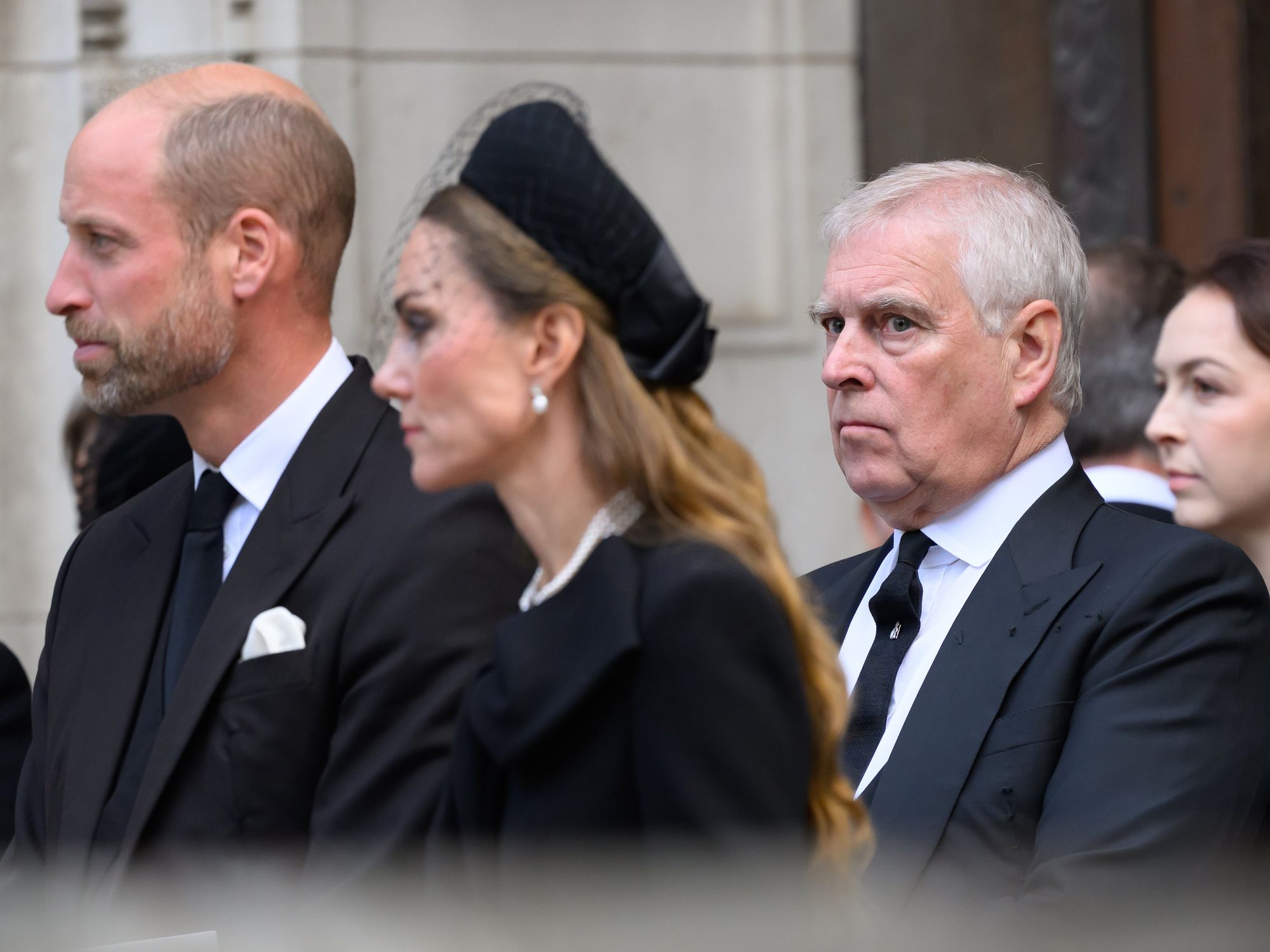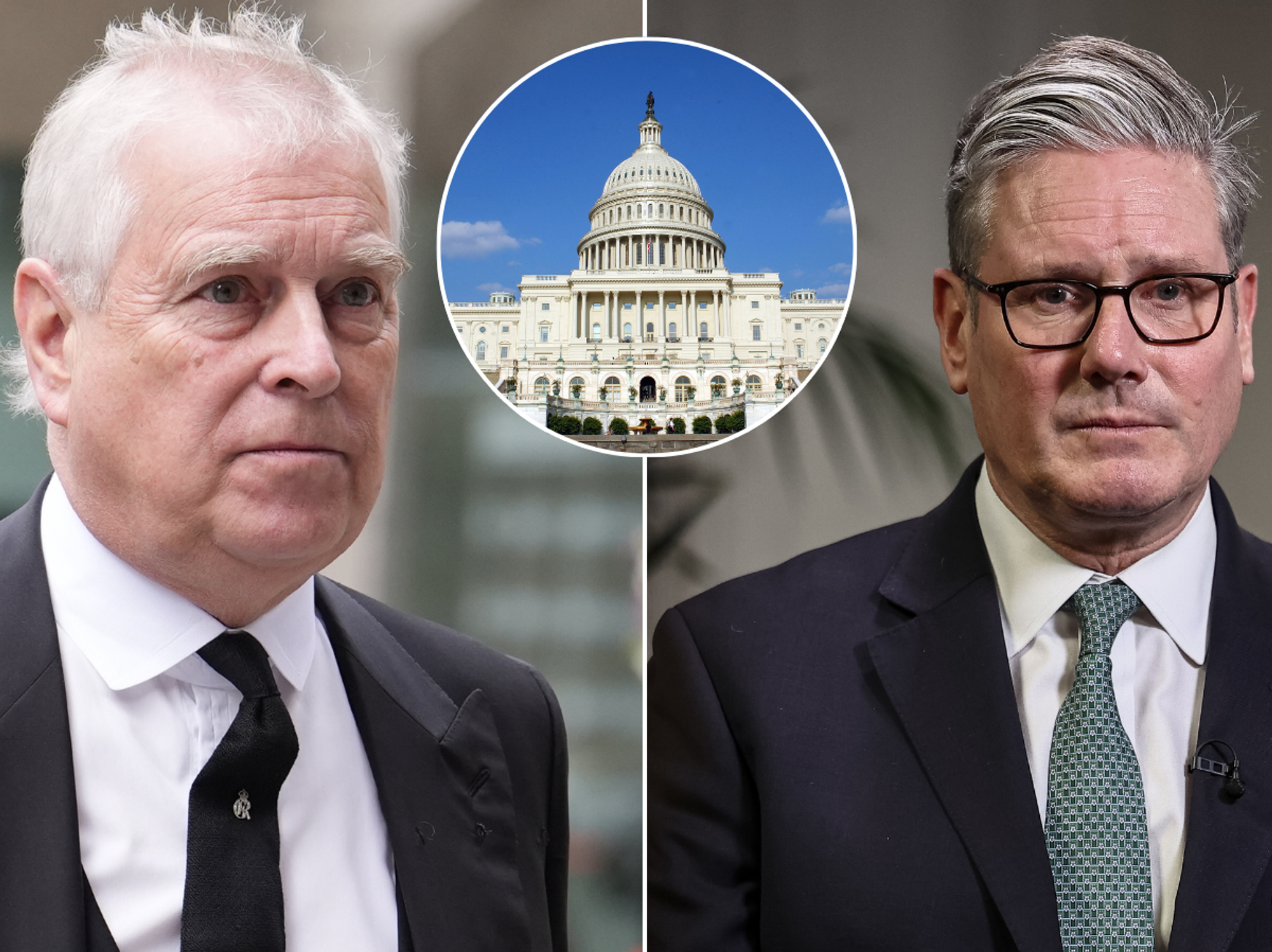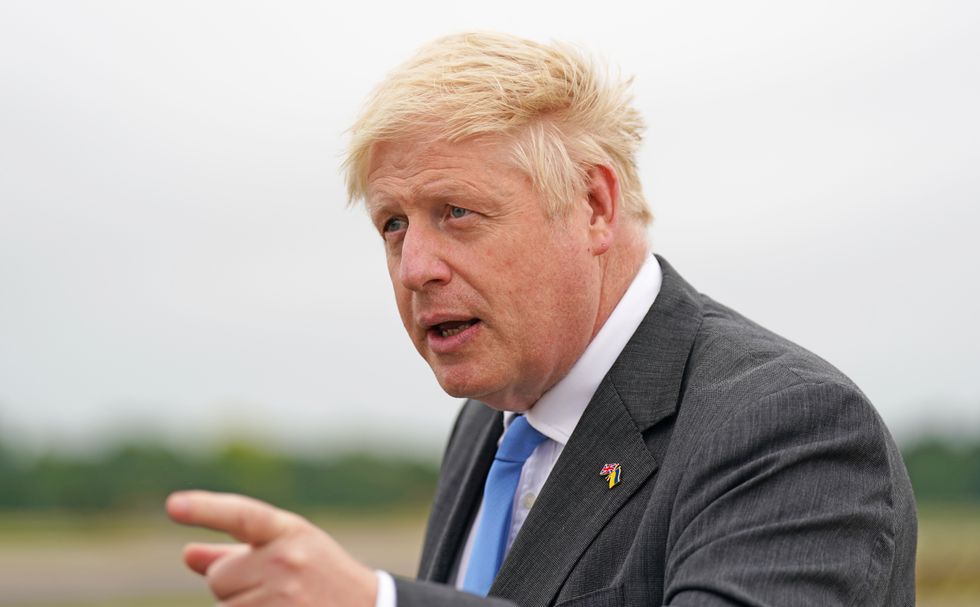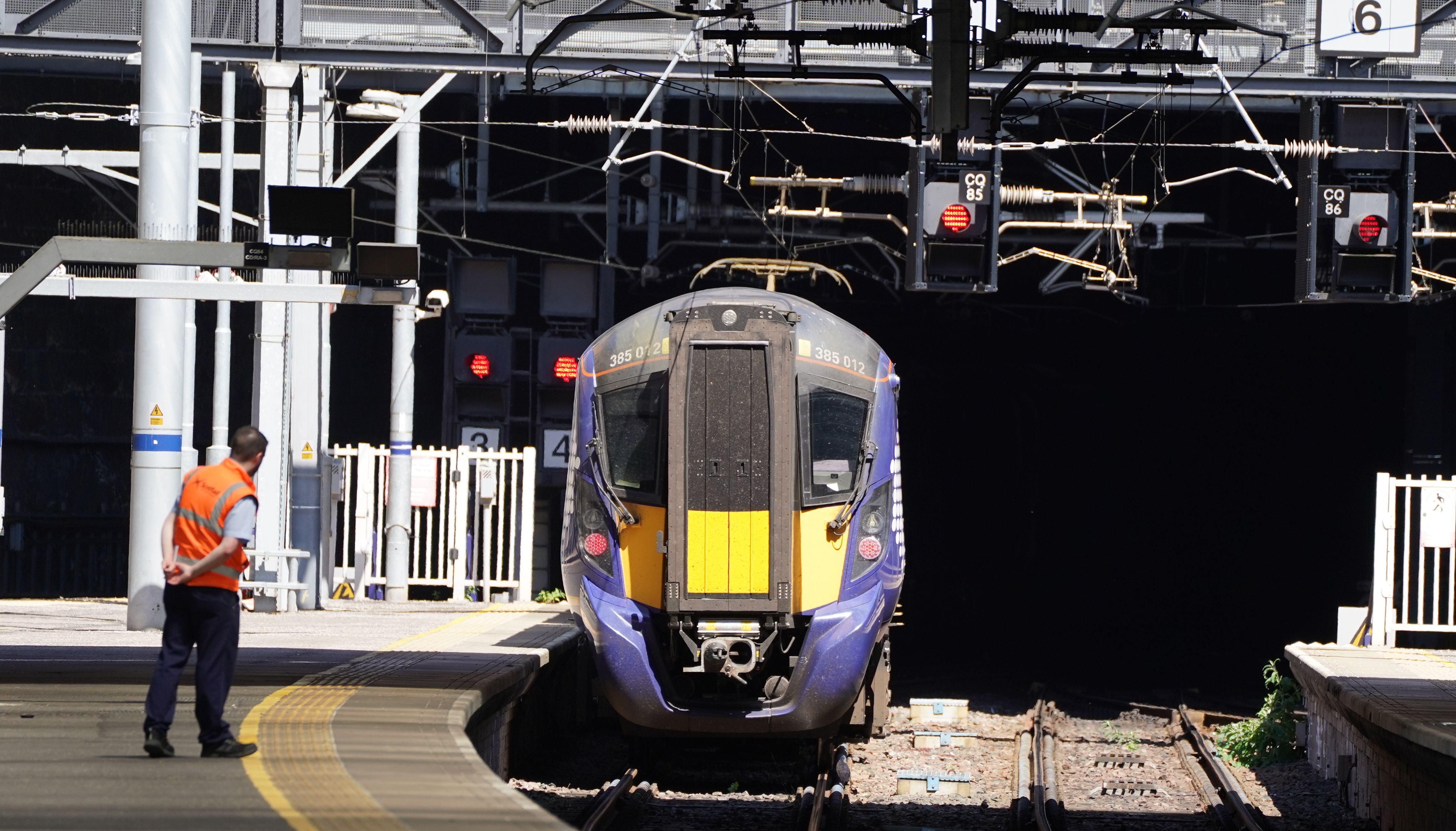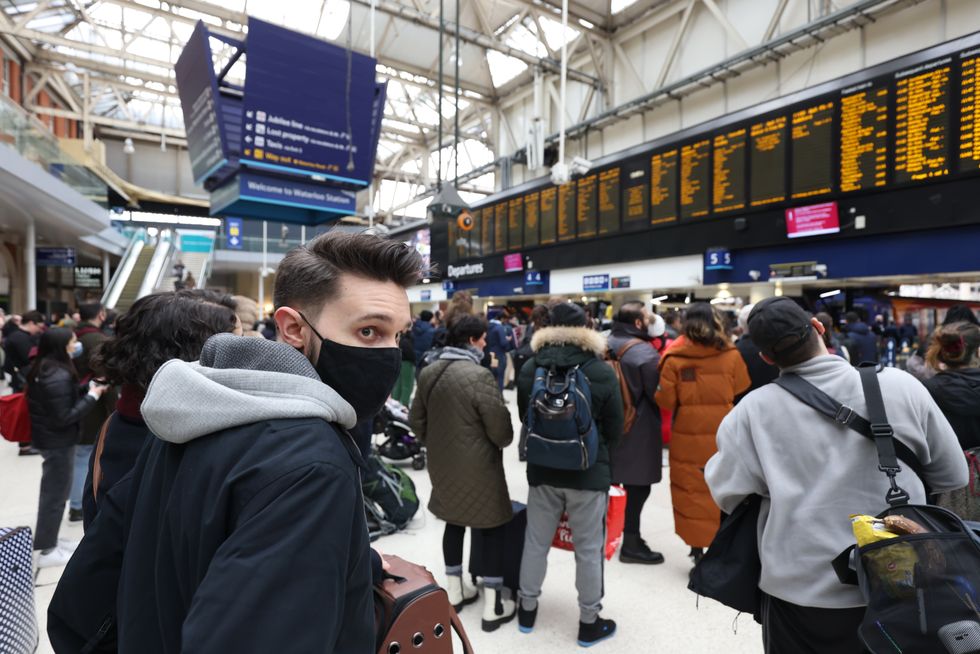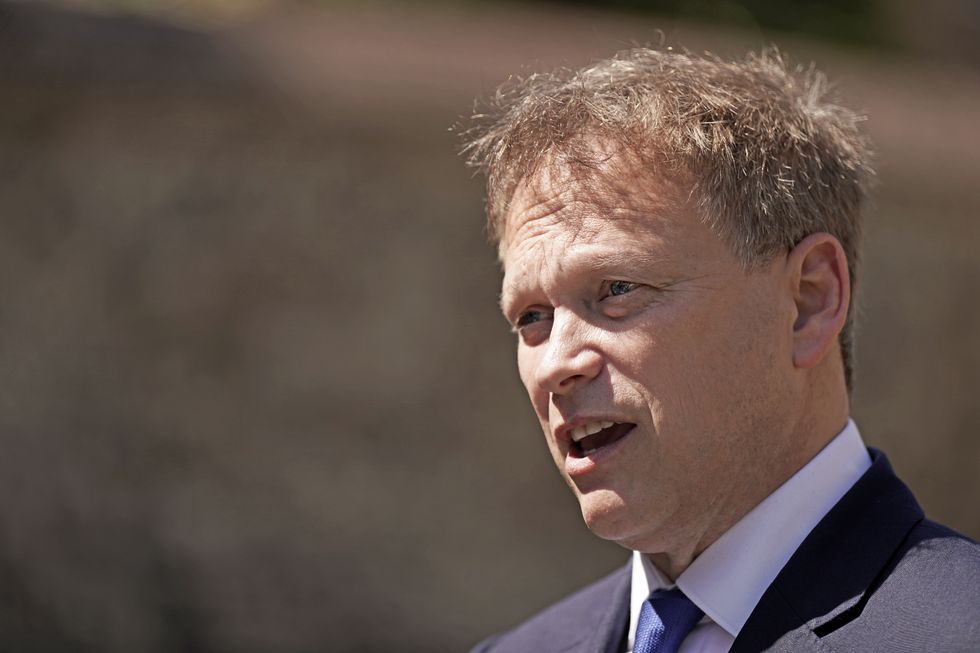Boris Johnson hits out at rail unions over walkout, calling for 'sensible compromise' to end strike
The PM is expected to tell his cabinet that the RMT are "harming the very people they claim to be helping"
Don't Miss
Most Read
Latest
Boris Johnson is set to call for a “sensible compromise” to shield rail passengers from country-wide travel chaos, after last-ditch talks to resolve a bitter dispute over pay, jobs and conditions failed to land on a solution.
The Prime Minister is expected to argue ahead of a Cabinet meeting on Tuesday that unions are “harming the very people they claim to be helping” by going ahead with the biggest outbreak of industrial action on the railways for a generation.
Thousands of members of the Rail, Maritime and Transport (RMT) union at Network Rail and 13 train operators will walk out on Tuesday, Thursday and Saturday.
Services across the UK will start to be affected from Monday evening, with just one in five trains running on strike days, predominantly on main lines and only for about 11 hours.
Prime Minister Boris Johnson is expected to attack the trade unions in today's cabinet meeting.
Joe Giddens
Talks between the RMT and Network Rail were still being held on Monday evening, just hours before the start of the first strike, but the row remains deadlocked, with all sides blaming each other for the lack of progress.
London Underground workers are also on strike on Tuesday.
Culture minister Chris Philp accused the RMT union of walking out of a live negotiation, and warned the strikes will mean patients are not able to travel to hospital for treatment, while children cannot get to school for their exams.
He told Channel 4 News the move would “inflict misery on my constituents and the general public”.
But RMT general secretary Mick Lynch said he was “talking a pack of nonsense”.
“I have not left any meetings, we’ve not walked out of meetings, we’re in a meeting right now with Network Rail,” he told Channel 4.
“The discussions are ongoing – if we get an offer that addresses the issues we could settle the dispute, but we haven’t had one at the moment.”
Workers at Glasgow Queen Street station. Trains will be disrupted due to industrial action as the RMT has announced industrial action on June 21, 23, and 25.
Andrew Milligan
The pair clashed again on BBC’s Newsnight, with Mr Lynch repeatedly accusing Mr Philp of lying by claiming he had previously said he would not negotiate with the Tory Government.
Asked about an insistence from Mr Johnson ahead of Cabinet that the Government is not “loading higher fares on passengers” to continue paying for working practices that “date back in some cases to the 19th century”, the RMT boss said the Prime Minister was talking “nonsense”.
He said: “We’re hearing a lot of nonsense from the Government today. We make agreements with companies all of the time and if you look at the key workforce in the Network Rail side of this dispute, we made a new agreement with the company in 2010 and 2011.”
He added: “We have modern technology, we have technology deployed for automatic train testing, for ultrasonic testing, for track inspections.
“So this idea that somehow we’re riding around promoting Stephenson’s Rocket is a mixture of hype and fantasy from the Government… people just making stuff up for the sake of it.”
Passengers wait at Waterloo station, London.
James Manning
He said his union would carry on industrial action “until we’ve delivered a solution for our members”.
Earlier, Mr Lynch warned the row could continue for months, adding: “It is clear that the Tory Government, after slashing £4 billion of funding from National Rail and Transport for London, has now actively prevented a settlement to this dispute.
“The rail companies have now proposed pay rates that are massively under the relevant rates of inflation, coming on top of the pay freezes of the past few years.
“At the behest of the Government, companies are also seeking to implement thousands of job cuts and have failed to give any guarantee against compulsory redundancies.”
The Department for Transport (DfT) disputed Mr Lynch’s claims on rail funding and job cuts.
It insisted that the Government is not slashing £4 billion from the network, pointing instead to a significant loss in revenue as fewer people travel by rail.
The DfT also denied the Government has directed the industry to make thousands of job cuts, saying it is for the employer to determine which roles may no longer be required.
The only job losses to date have been voluntary, it said.
The Prime Minister is set to accuse unions of “driving away commuters who ultimately support the jobs of rail workers”, while also hitting businesses across the country.
He will say: “Too high demands on pay will also make it incredibly difficult to bring to an end the current challenges facing families around the world with rising costs of living.
Transport Secretary Grant Shapps speaks to the media College Green, central London. Trains will be disrupted due to industrial action as the RMT has announced industrial action on June 21, 23, and 25.
Aaron Chown
“Now is the time to come to a sensible compromise for the good of the British people and the rail workforce.”
Downing Street said ministers at Tuesday’s meeting would also discuss the tough economic climate facing the country.
On the issue of public sector pay, the Prime Minister and Chancellor are expected to argue discipline and restraint are key now to manage inflationary pressures downwards.
“We have a responsibility to tackle inflation and stop it becoming entrenched,” No 10 said.
“To do this we must ensure that pay settlements are sensible and do not scramble to match inflation, and as a result drive up prices as the cost of goods and service increase to incorporate pay rises.”
Speaking ahead of Cabinet, the Prime Minister said: “It is right that we reward our hard-working public sector workers with a pay rise, but this needs to be proportionate and balanced.
“Sustained higher levels of inflation would have a far bigger impact on people’s pay packets in the long run, destroying savings and extending the difficulties we’re facing for longer.”
It comes after the chief secretary to the Treasury called for “public-sector pay discipline” and “collective society-wide responsibility” in order to prevent a 1970s-style wage-price spiral.








